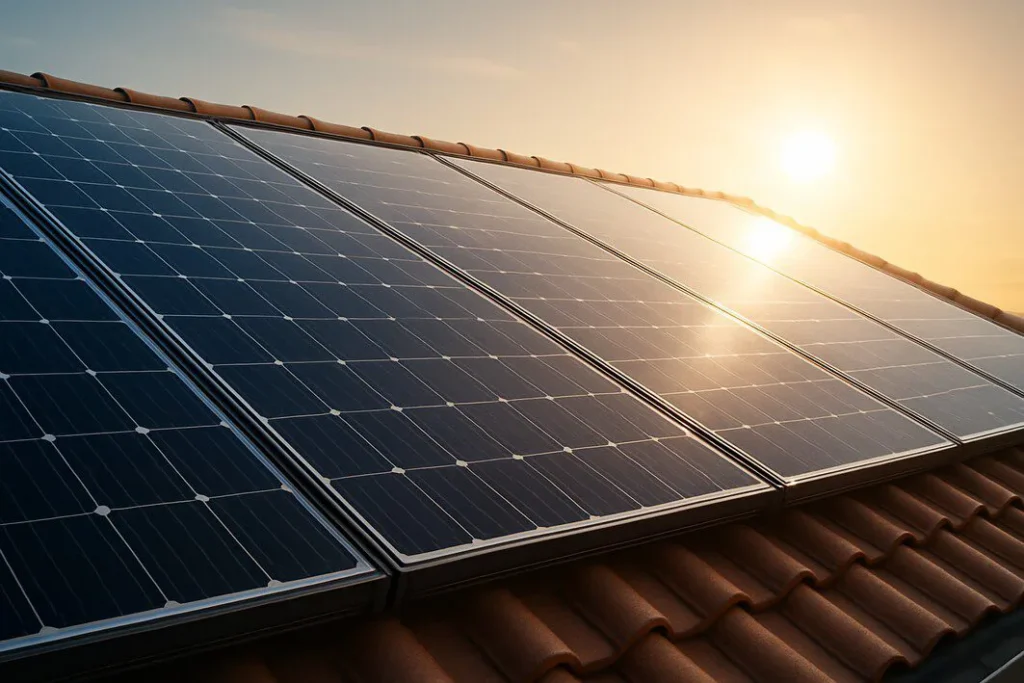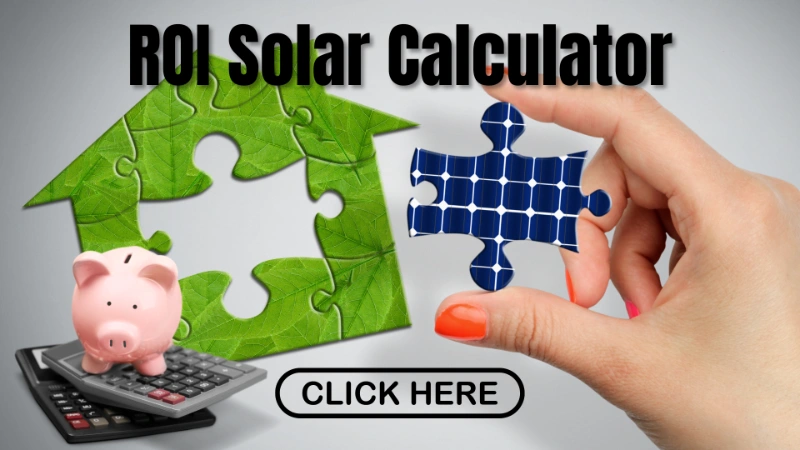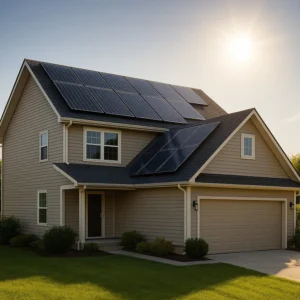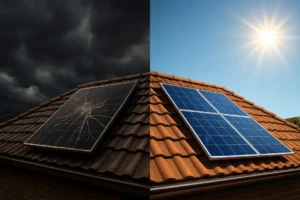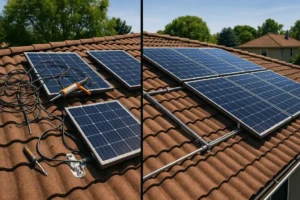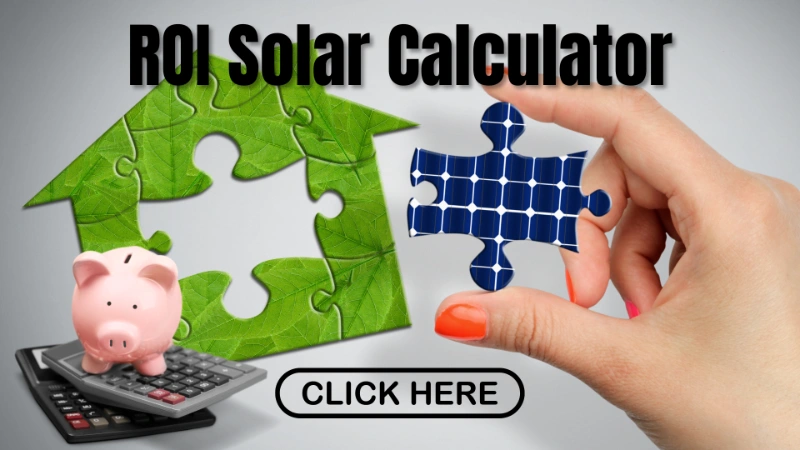When considering a switch to solar energy for your home, one of the most important questions you’ll ask is, “How long do solar panels last?” It’s a crucial piece of the puzzle, directly impacting the value and return on your investment. Understanding the typical solar panel lifespan helps you see the long-term benefits of generating your own clean energy.
Table of Contents
At RenewGenius, our goal is to provide a comprehensive solar knowledge base to empower homeowners like you. We believe that a confident decision comes from clear, reliable information. This guide will walk you through everything you need to know about the durability of solar panels, what affects their longevity, and how to maximize their performance for decades to come.
What is the Average Solar Panel Lifespan?
The industry standard for a modern solar panel’s lifespan is between 25 to 30 years. Most reputable manufacturers provide a performance warranty that guarantees their panels will operate at a certain capacity for this period.
However, this doesn’t mean your panels will suddenly stop working on their 26th birthday. It simply means that after this period, their energy production may decline more noticeably. Many well-maintained systems continue to generate a substantial amount of electricity for 40 years or even longer, making them a remarkably durable home upgrade.
Understanding Solar Panel Degradation
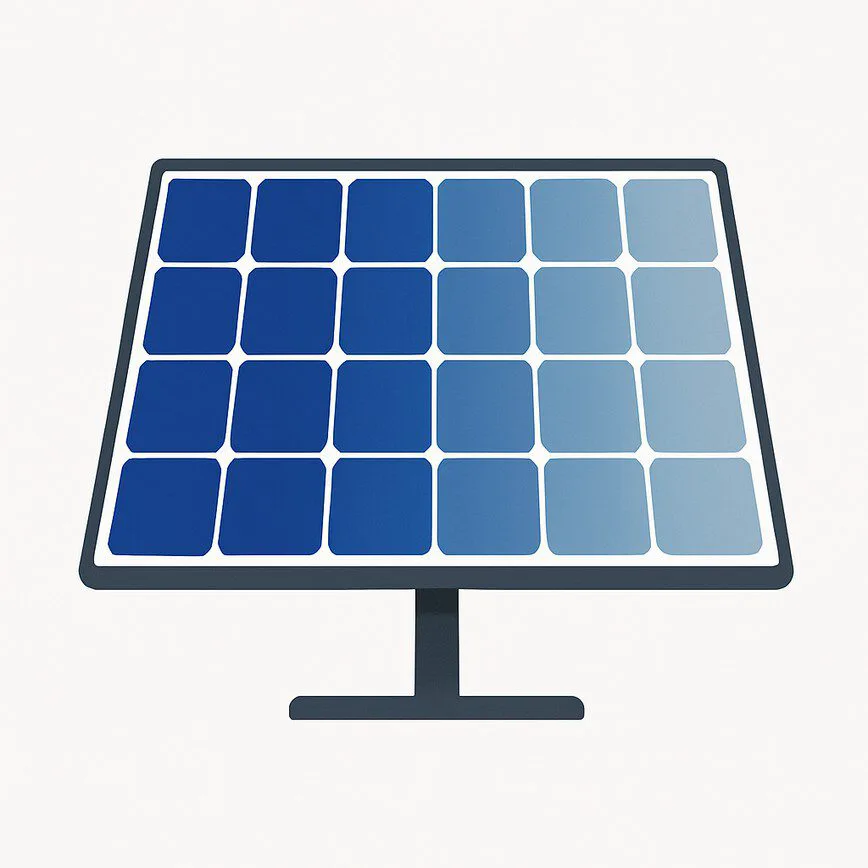
The term “lifespan” in the solar industry is closely tied to the concept of degradation. Solar panel degradation is the slow, natural decline in power output that occurs over time.
- Standard Degradation Rate: High-quality solar panels typically have a degradation rate of about 0.5% per year. This means that each year, the panel’s maximum power output will decrease by a tiny fraction.
- Performance Warranties: This predictable decline is why manufacturers offer a performance warranty. A typical warranty might guarantee that the panels will still produce at least 80-90% of their original rated power after 25 years. This ensures your system delivers reliable energy for the long haul.
Factors That Influence How Long Solar Panels Last
While 25-30 years is the benchmark, several factors can influence the actual solar panel lifespan. Understanding these can help you protect your investment.
Quality of Materials and Manufacturing
Not all solar panels are created equal. High-quality panels made with durable materials, robust frames, and tempered glass are better equipped to withstand the elements and resist degradation. As experts in residential solar solutions, we always emphasize choosing panels from established manufacturers with a proven track record.
Climate and Weather Conditions
Your local climate plays a significant role. Panels in regions with extreme temperature swings, heavy snowfall, frequent hailstorms, or hurricane-force winds may experience more physical stress over their lifetime. However, modern panels are engineered to be incredibly resilient and are tested to withstand harsh conditions.
Proper Installation
A flawless installation is critical for longevity. Professional installers ensure that panels are securely mounted to your roof, wiring is protected from the elements, and the system is optimized to prevent issues like water leaks or physical strain. An improper installation can lead to premature wear and damage, shortening the life of your system.
Solar Panel Maintenance
Like any major home appliance, your solar system benefits from proper care. Consistent solar panel maintenance is one of the easiest ways for a homeowner to ensure maximum efficiency and a long lifespan.
Essential Solar Panel Maintenance Tips to Maximize Lifespan
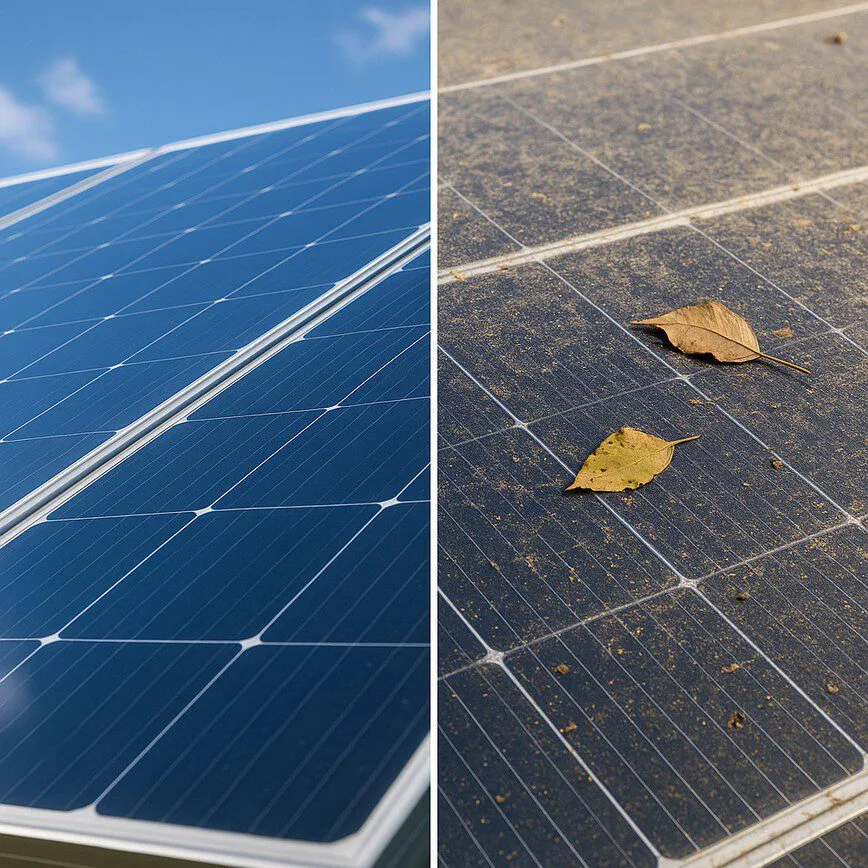
The good news is that solar panels require very little maintenance. They have no moving parts and are built to endure. Following a few simple practices will keep them in peak condition.
- Regular Cleaning: Over time, dust, pollen, leaves, and bird droppings can accumulate on your panels, slightly reducing their energy production. In most climates, regular rainfall is enough to keep them clean. However, if you live in a particularly dry or dusty area, a gentle cleaning with a hose or a soft brush once or twice a year can help maintain optimal output.
- Professional Inspections: We recommend having a professional inspect your system every few years. A technician can check for secure racking, sound wiring, and ensure the inverter and other components are functioning correctly. This proactive approach helps catch minor issues before they become major problems.
- Monitoring System Performance: Keep an eye on your system’s energy output through your monitoring app or software. A sudden, unexplained drop in production could signal an issue that needs attention. Early detection is key to a long and productive solar panel lifespan.
Does Lifespan Affect My Return on Investment?
Absolutely. The durability of solar panels is directly linked to their financial value. A longer lifespan means more years of generating free, clean electricity and greater savings on your utility bills. The longer your system operates, the higher your overall return on investment (ROI) will be.
Because this is a long-term investment, it’s vital to see the complete financial picture. By understanding how factors like panel longevity, system cost, and energy savings come together, you can make a truly informed decision. For a deeper dive, we recommend calculating your specific return on investment to see how the numbers work for your home. Our ROI calculator and resources are designed to help you take this critical step with confidence.
Planning for the Future: What Happens After 30 Years?
Even after their 25-30 year warranty period, most solar panels will still be producing a significant amount of power. When they do eventually reach the end of their useful life, the solar industry has a growing focus on sustainability. Over 90% of a solar panel’s materials, like glass and aluminum, can be recycled and repurposed, minimizing environmental impact.
By investing in a quality residential solar system today, you’re not just saving money—you’re securing decades of energy independence with a durable, low-maintenance, and powerful technology.

